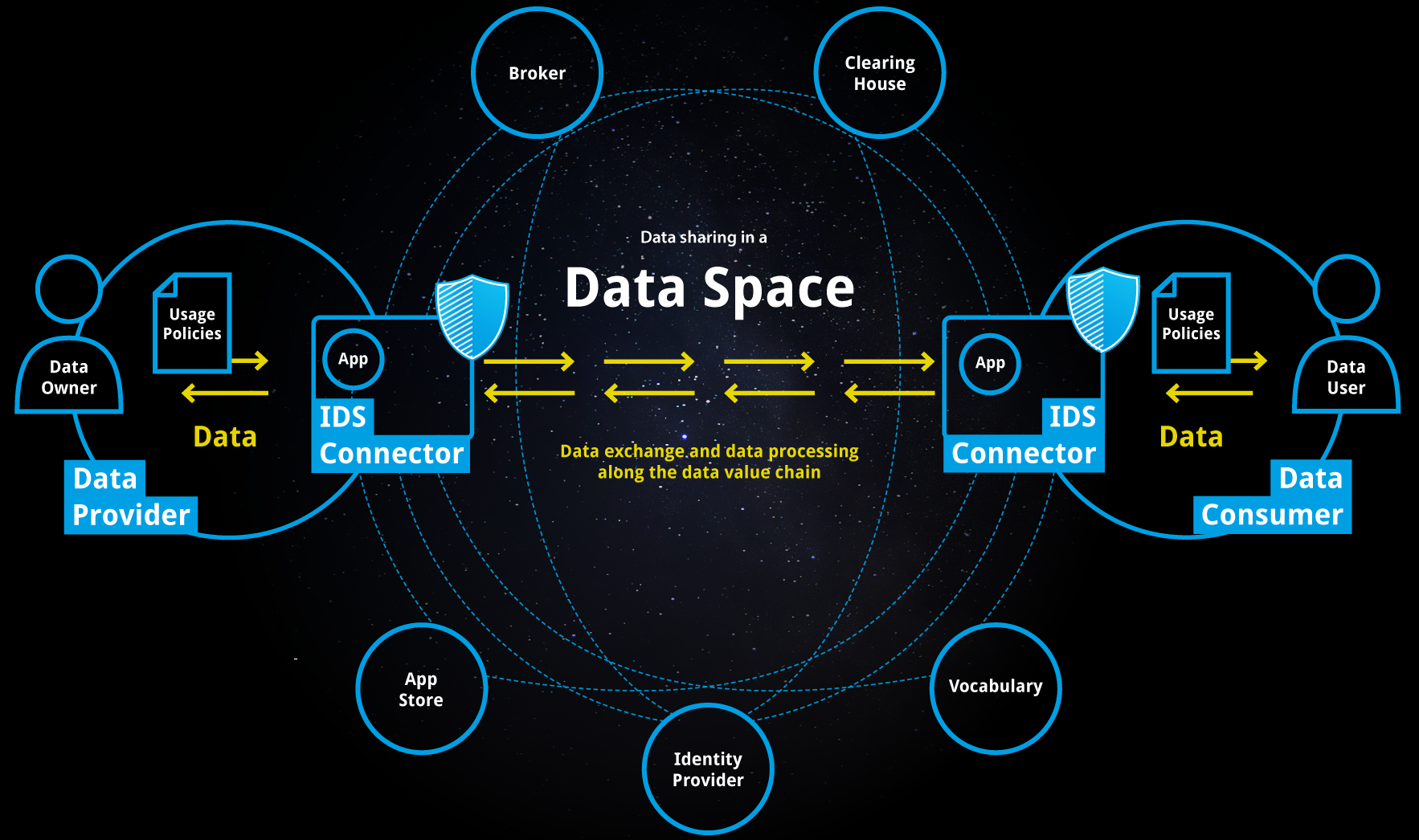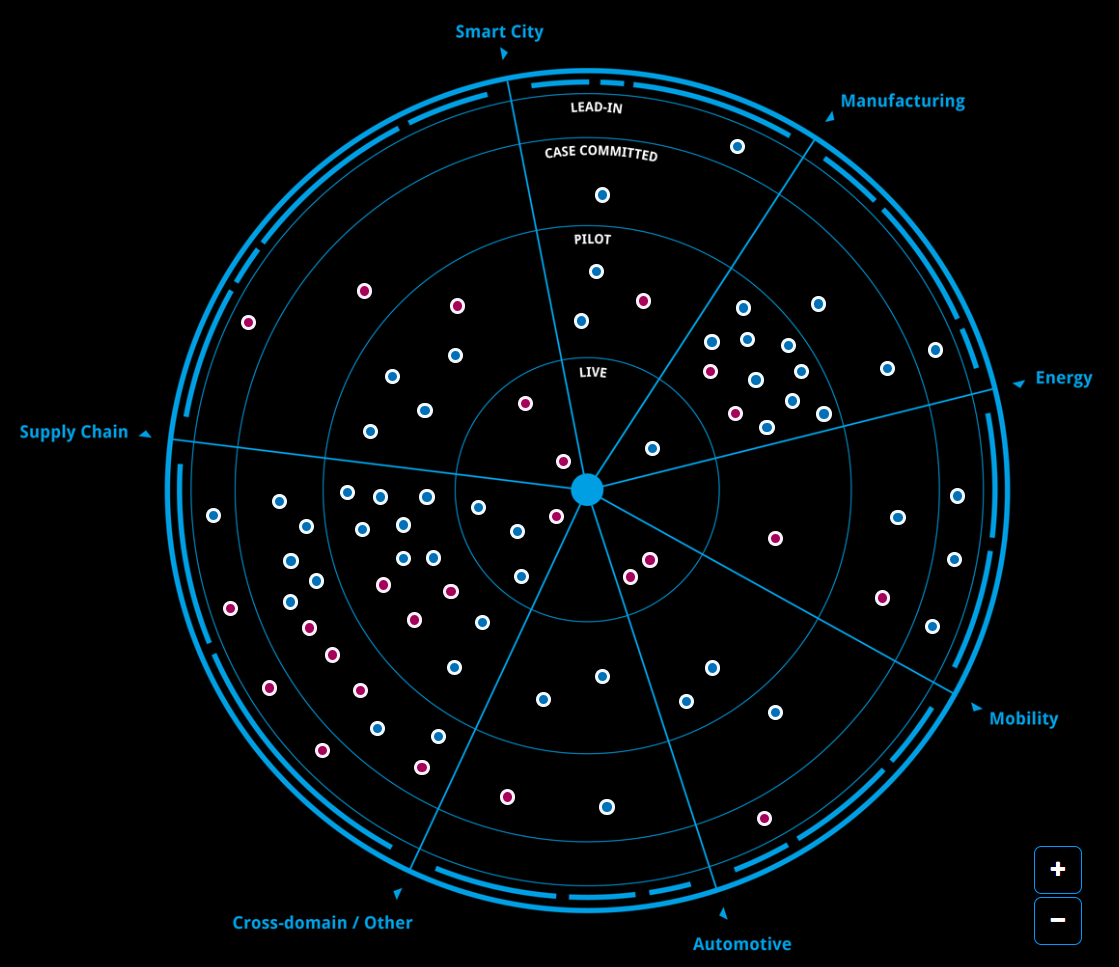Data Spaces
What are data spaces?
Data spaces are data sharing ecosystems which are built on uniform rules, certified data providers and recipients and trust among partners. They provide a secure and privacy-preserving infrastructure to pool, access, process, use and share data. Data owners have control over who has access to their data, for what purpose and under what conditions it can be used.

Implementing data spaces
IDSA provides technology guidance for implementing data spaces in a standardized manner:
- The IDS Reference Architecture Model (IDS-RAM) – the IDS-RAM sets the standard for building data-driven ecosystems, products and services via trustworthy, self-determined exchange. Read more
- IDS connector – The IDS Connector is the central technical component for secure and trusted data sharing. The connector sends the data directly to the recipient, so the original data provider always maintains control over the data and sets the conditions for its use. Read more
- IDS certification –Trustworthy partnerships are at the heart of data spaces. The goal of IDSA is to establish data spaces that guarantee a safe collaboration between partners through a rigorous, transparent certification process. Read more
Data sharing landscape
The landscape of data sharing is changing towards exchange of data with wide variety among numerous users and owners of data. The greater the data variety, the bigger the business value. The IDSA Data Space Radar maps all data spaces in one easy-to-use tool. The radar covers use cases of different degrees of maturity from the phase of creating a business case to real data spaces. From planned to pilot to fully operational, across industries and functional domains — the use cases that align with your business goals are on the radar.

What is data sovereignty?
Data sovereignty is the capability of an organization or an individual to have full control over their data. They should be able to know which party holds what data, under what conditions (purpose, duration, reward) and where. The IDS standard enables stakeholders to determine how, when and at what price others may use their data across the value chain. Data sovereignty is a central design principle of the entire data economy and a prerequisite for each organization’s data architecture.
